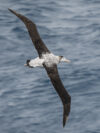Bat Conservation in the Copperbelt, Zambia
Tags: Research, Conservation Action, Zambia
Implementing Partner: Bats without Borders
Straw-coloured fruit bat
The straw-coloured fruit bat (Eidolon helvum), often referred to as the ‘Gardeners of Africa,’ is known for orchestrating the world’s largest mammal migration. Annually, millions of these bats journey across the African continent, with over ten million arriving in Zambia between September and January. Most of them congregate at Kasanka National Park, which boasts the world’s largest fruit bat roost. Besides Kasanka, significant urban roosts can be found in Ndola and Kitwe (Copperbelt Province, Zambia).
These bats, as long-distance travelers, play an essential role in ecosystem services such as seed dispersal and reforestation. Despite their ecological importance, straw-coloured fruit bats face significant persecution. The rampant deforestation in Zambia limits their habitats, forcing them into smaller areas, including cities and private gardens. They are often misidentified as invasive species and viewed as pests, leading to their mistreatment and persecution in urban settings. In Ndola, for example, some residents cut down roost trees or smoke out the bats, sometimes even killing them directly.
With increasing threats from habitat loss, climate change, and persecution, it is critical to develop strategies for harmonious coexistence between humans and bats in Zambia. Research on human-bat interactions indicates that education, raising awareness, and fostering a greater understanding of the ecological benefits provided by bats are key to their conservation.
Copperbelt Bats Projects
Human-bat conflict puts both people and bats at risk, which is why one of Bat without Borders’ key work areas is people engagement. To help mitigate human-bat conflicts in the Copperbelt province, this project aims to use a co-designed, inclusive, and participatory approach to working with young people in local schools.
Bats without Borders employs a Community Engagement Officer who will work with these communities to address the human-bat coexistence situation.
The project activities are divided into three stages:
- Working with schools on their Classroom without Walls programme to inspire an interest in bats, nature and science;
- Working with a youth panel to co-design bat activities and a story book to address human bat conflict situations and champion local support for bats;
- Run workshops for Environmental Educators and teachers to scale the programme.
Straw-coloured fruit bats in Kasanka National Park, Zambia. Photo: Rachael Cooper-Bohannon
Stage One – Classrooms without Walls Awareness Raising Bats without Borders will collaborate with two primary schools in Ndola and Kitwe. The BwB Engagement Officer will deliver eight lesson plans on bat biology, ecology, and conservation as part of the Classroom without Walls training program. The goal is to test the effectiveness of these lessons and explore how they can be enhanced to engage young students in bat conservation.
Stage Two – Youth Panel Co-Design BwB will invite 5-10 students from each school to form a Youth Panel. This panel will provide feedback on the initial lessons and co-design a follow-up session addressing human-bat conflict. Additionally, they will create a book about their relationship with the Eidolon bats in Ndola and Kitwe, emphasizing the importance of protection. This book will be distributed to schools, educators, and local libraries to promote positive bat activities.
Stage Three – Train the Trainer Event Based on feedback from the initial lessons and Youth Panel activities, BwB will develop a Train the Trainer package. A Train the Trainer event will equip up to 10 environmental educators and teachers with the resources and knowledge to deliver similar bat conservation sessions, thereby extending the program’s reach and impact.
The C4C Fund is proud to support this vital bat conservation project. For more information, visit the Bats without Borders website or follow their social media channels.



